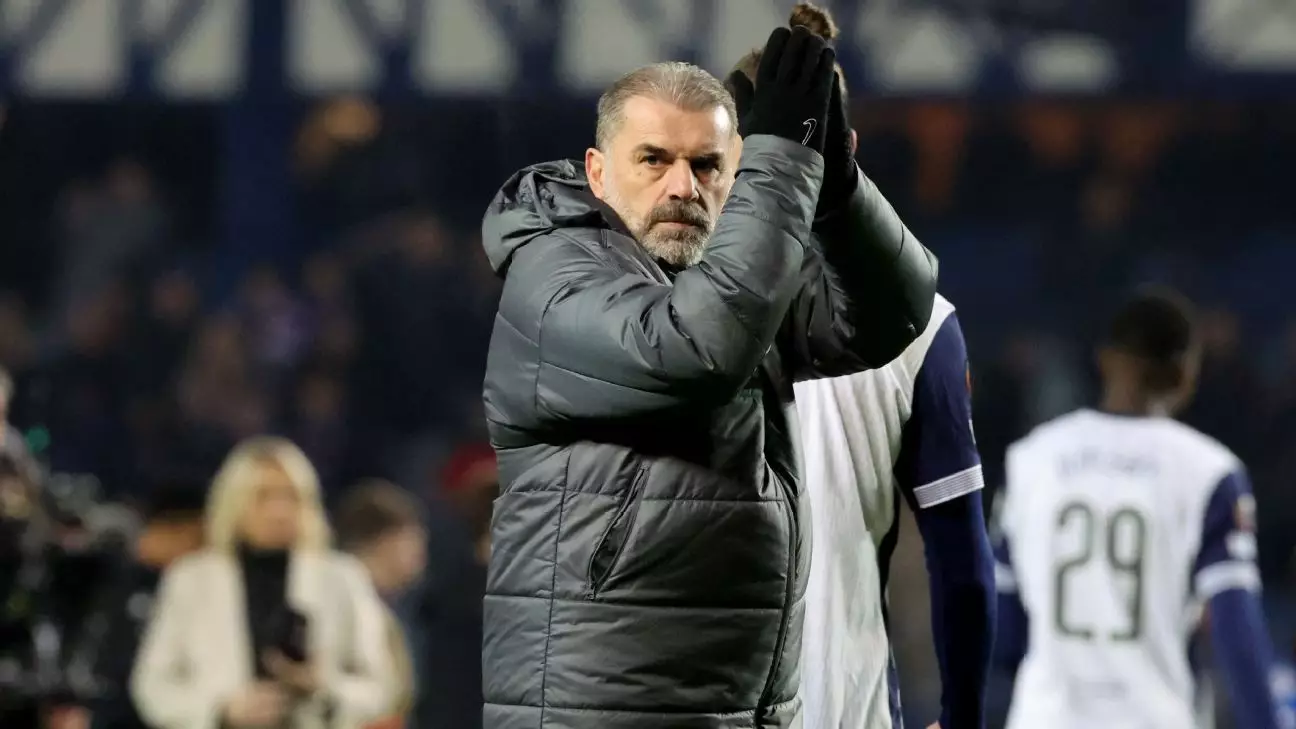Ange Postecoglou, head coach of Tottenham Hotspur, finds himself navigating turbulent waters as the team’s recent performance raises serious concerns. With only one win out of their last eight matches, the north London club has experienced a visible decline that has left both fans and the management questioning the stability of his position. This downturn in form has spurred discussions about the future of Postecoglou at Spurs, especially in the wake of growing frustration among supporters who were once hopeful about the direction of the team.
The intensity of emotions surrounding this situation boiled over recently, culminating in a contentious encounter between Postecoglou and some disgruntled fans following a disappointing defeat to Bournemouth. This moment encapsulates the growing unrest at the club and illustrates the reality of leadership in professional sports—where allegiance can quickly dwindle amidst a streak of poor results.
Tottenham’s upcoming match against Southampton, the team anchored at the bottom of the Premier League, is critical. With the stakes higher than ever, a convincing performance is essential not only to secure three points but also to restore confidence within the squad and its fanbase. If the team falters yet again, the repercussions could intensify the scrutiny on Postecoglou’s management and tactics.
The match at St. Mary’s carries a historical weight; it serves as a reminder of a similar situation that haunted former manager Antonio Conte, whose polarizing comments about his players after a dramatic draw against Southampton remain etched in fans’ memories. Such a narrative sets a stage where the expectations significantly elevate and the pressure mounts. The task for Postecoglou is not just to win but to do so convincingly while rebuilding a culture of trust and commitment within the team.
Postecoglou’s resilience in the face of adversity resonates through his statements that convey both defiance and optimism. He expresses a palpable determination to fight through the current struggles, emphasizing that he loves the challenges that come with leading a football team during tough times. This combativeness is inspiring, showcasing a manager who understands the importance of facing issues directly rather than shying away.
Critically different from his predecessor, Postecoglou refrains from publicly airing grievances about his players, instead opting to take accountability for the results. His comments indicate a clear expectation for his squad to show resilience and dedication, insisting that the focus remains on meaningful contributions rather than seeking excuses for their struggles. However, this approach also drifts into a precarious territory; it raises the question of whether a rigid expectation for performance can mitigate the mental and emotional toll such disappointing results can inflict on players.
The Australian coach is acutely aware that leadership demands not only a vision for the future but also the necessity of executing that vision in the present. By acknowledging the weight of past failures—both personal and historical—within the club’s context, he aims to galvanize his squad. He dismisses the notion that some external force restricts success at Tottenham, thereby urging his players to adopt a mindset anchored in accountability and professionalism.
While Postecoglou’s rhetoric is ambitious, it is important to consider the effect his words will have on a team already grappling with confidence issues. He expresses impatience with what he perceives as “bruised egos,” advocating for an attitude geared towards upward momentum rather than defeatism. His perspective challenges not just his players but the fans as well, compelling everyone associated with the club to rally together, embracing the fight rather than falling victim to despair.
Recent injuries have compounded the team’s difficulties, placing additional strain on a squad that is already underperforming. The absence of key defenders such as Cristian Romero and Micky van de Ven leads to tactical reshuffling and a lack of continuity that can hamper performance consistency. Postecoglou’s acknowledgment of squad limitations suggests he is prepared to adjust his strategies to weather this storm effectively.
Despite these challenges, the coach remains focused on navigating the team through the current crisis. Should Tottenham emerge from this difficult phase, not only will confidence be restored, but Postecoglou’s management will be validated. As the upcoming encounter against Southampton looms, all eyes will be on Spurs to see if they can turn their fortunes around and start a new chapter in the ongoing narrative of resilience, self-belief, and communal spirit within the squad.

